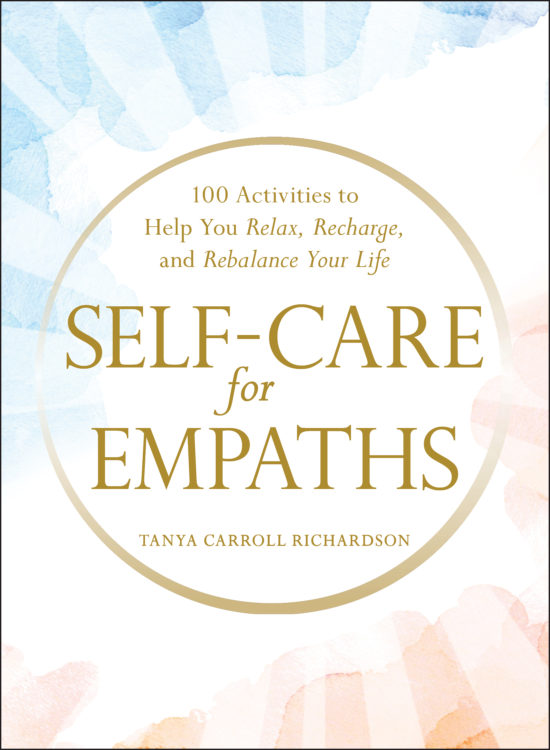Excerpted from “Self-Care for Empaths“ by Tanya Carroll Richardson. Copyright © 220 by Tanya Carroll Richardson. Used with permission of the publisher, Adams Media, an imprint of Simon & Schuster, Inc. All rights reserved.
Being an empath makes you a little different, which means your self-care practices need to be a little different too. Because you have hyper-perceptive nervous and energetic systems that pick up more easily on subtle stimuli, you are more prone to overstimulation and will need to build mindful retreat-and-recover time into your schedule.
Retreat-and-recover time involves unplugging your nervous and energetic systems from the larger grid and doing things that are more low stimulation, where there is simply less of others’ energies and emotions to take in. Classic examples of retreat-and-recover time are reading quietly beside a partner before bed or getting lost in a solo creative project, like knitting on a lazy Saturday afternoon. Retreat-and-recover time is just one of the many empath-specific self-care practices we’ll cover in this book, but it’s an important one.
Because energy is something you’re very sensitive to, learning how to nurture, connect with, and manage your own energy is another important self-care tool. Processing your emotions, and developing empath-friendly techniques to do so, helps you avoid getting caught up in the emotions of others. Just because you can feel other people’s emotions does not mean you are responsible for their emotions. Paying more attention to your own emotional experience helps you avoid going into that of others in an unhealthy way.
While empaths are naturally wired to tune in to the energies and emotions around them, you can learn to mindfully tune in—or tune out—by engaging witnessing energy. We’ll look at different situations and why you might choose to tune in or out in each. Balance is the golden rule for empaths, and we’ll cover ways to cultivate more balance in all areas of your life, including creating more energetic balance in your physical home.
If you already have some self-care activities that you practice, you can continue doing those as well. For example, eating a healthy diet, taking supplements or medication, getting plenty of rest, exercising in moderation, having nourishing relationships, finding emotional support, being of service or giving back, engaging in activities that light you up, and maintaining a good work-life balance are self-care principles that work for anyone.

You can get your copy of “Self-Care for Empaths” by Tanya Carroll Richardson here.
Header image via Lidiia Moor/Getty Images

